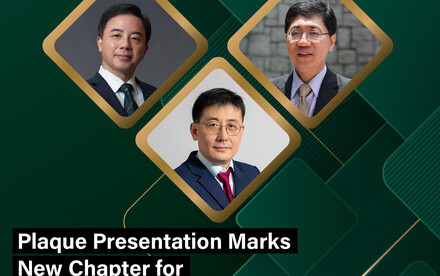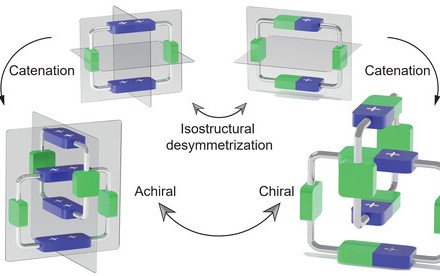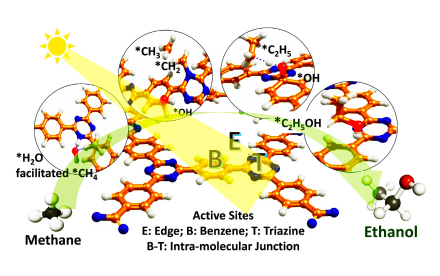28 May 2024
Chemistry Research Projects Awarded Funding Under Innovation and Technology Commission's RAISe+ Scheme
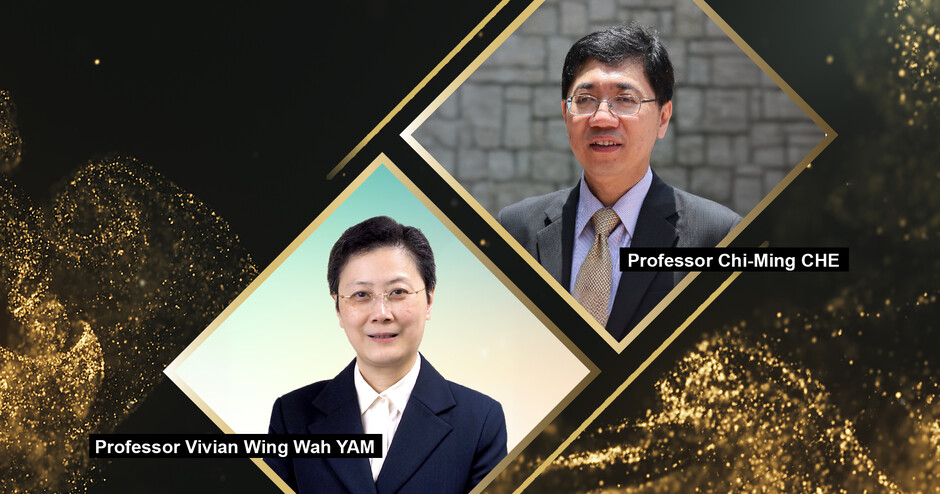
Two research projects, led by renowned chemists Professors Chi-Ming CHE and Vivian Wing Wah YAM respectively, have recently secured funding through the Research, Academic, and Industry Sectors One-plus Scheme (RAISe+) of the Innovation and Technology Commission (ITC).
Launched in October 2023, this visionary scheme aims to unleash the untapped potential of local universities in research and development (R&D), facilitating the transformation and commercialisation of their outcomes. It also fosters collaboration among the government, industries, universities, and research sectors.
The RAISe+ Scheme empowers universities to submit up to 15 applications per solicitation exercise. The HKU research projects that have earned this distinction encompass diverse industries and promise to leave a lasting impact on both local and global communities.
Professor Max Shen, Vice-President and Pro-Vice-Chancellor (Research) of HKU was delighted with the funding results. He said: 'We are honoured to receive this recognition and support from the government's RAISe+ scheme. The funding will accelerate the progress of these projects, enabling HKU researchers to develop innovative solutions, strengthen industry partnerships, and ultimately bring research outcomes to market.'
The two HKU Science projects are:
Innovative Molecular Emitters for Practical OLEDs and Wearable Devices
PI: Professor Chi-Ming Che, Zhou Guangzhao Professor in Natural Sciences and Chair Professor of Chemistry
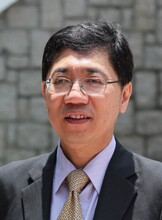
Professor Chi-Ming Che
Zhou Guangzhao Professor in Natural Sciences and Chair Professor of Chemistry
OLED displays have been applied in smartphones, televisions, smartwatches, and VR headsets. However, the OLED industry faces three major challenges: (i) to achieve high efficiency blue and near-infrared (NIR) OLEDs, (ii) to reduce the cost of OLED emitters, (iii) to develop wearable biomedical devices incorporating flexible OLED displays. The project primarily focuses on realising proprietary blue, green, red and NIR non-iridium OLED emitters based on phosphorescent platinum or metal-TADF (including gold, copper and palladium) complexes with high operationally stability and efficiency in OLED devices. This can reduce material costs and reliance on emitters based on the rare-earth metal iridium, thereby promoting the sustainable development of OLED technology. Establishing a patent portfolio of proprietary OLED emitters and devices with practical performance will enhance the competitiveness of the national OLED industry. Additionally, the research team is developing wearable display devices for phototherapeutic or biomedical applications, utilising our practically stable and efficient NIR-emitting or colour-tunable OLED devices.
In the RAISe+ program, the project team has established strong partnerships with national and global companies. The team consists of a group of scientists and engineers with industrial backgrounds, dedicated to optimising OLED emitters and device architectures to improve device efficiency and operational lifespan, paving the way for commercialisation.
Transformative Proprietary Gold(III) Luminescent Materials for Innovative Applications
PI: Professor Vivian Yam, Philip Wong Wilson Wong Professor in Chemistry and Energy and Chair Professor of Chemistry
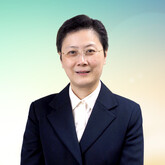
Professor Vivian Yam
Philip Wong Wilson Wong Professor in Chemistry and Energy and Chair Professor of Chemistry
Based on the Nation’s No. 1 world ranking in gold mine production, the project team will fully exploit the country's national resources on the much higher-abundance gold and the research team's competitive edge in original discovery of gold(III) luminescent materials for OLED applications. The project aims to unleash the full potentials of the research team's proprietary gold(III) luminescent materials and expand their applications into healthcare industry. The project has gathered under it a world-class interdisciplinary research team with complementary expertise in chemistry, materials science, photophysics, computation, organic optoelectronics/electronics, device physics and engineering, medicine and clinical science to address the grand challenges. Through the synergistic team efforts, the present project will generate a novel series of high-performance gold(III) luminescent materials of international originality and possessing Hong Kong-owned intellectual property rights not only for OLED applications, but also to develop handy, compact and affordable non-invasive healthcare devices. With the support of ITC and industrial partners, together with support from an aerospace industrial partner to conduct product trials at the Space Stations, the project team will contribute to finding innovative applications in the healthcare industry and making a contribution to the development of our National Space Science and Technology Mission.
For more information about the RAISe+ scheme and the awarded HKU research projects, please visit: https://raise.tto.hku.hk/


